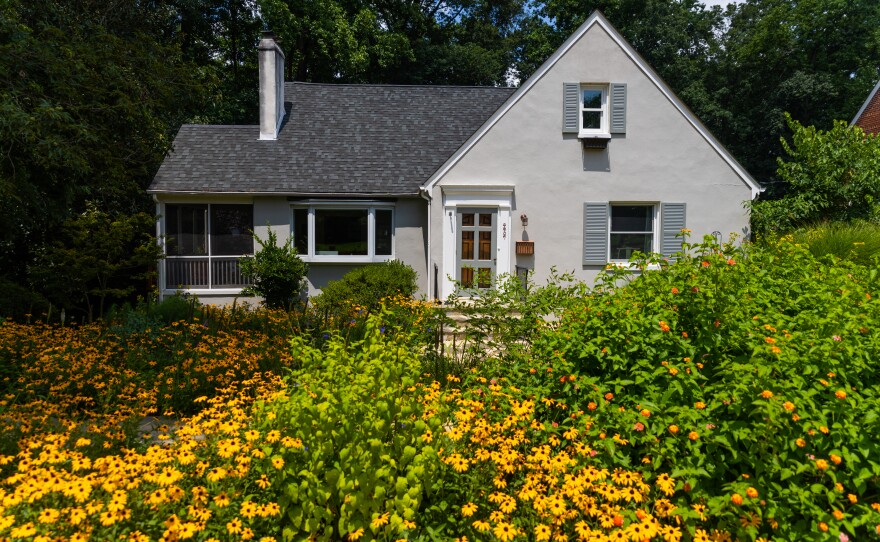The final two pieces of Richmond planners’ short-term zoning strategy are now before City Council after an administration bill on short-term rentals was introduced Monday, combining the sharing economy with a return to a century-old housing practice.
The ordinance would allow short-term rentals, commonly booked through platforms like Airbnb and VRBO, in any residential district and raise permitting fees to operate them.
Another bill regulating small housing units called accessory dwelling units would also allow them to be built by-right on single family lots in any residential zone of the city.
These two changes, along with April’s elimination of parking minimums, are the major adjustments the Department of Planning and Review has undertaken in the past year and a half, said the department’s director, Kevin Vonck.
“We took them together, because they're all interrelated,” he said in an interview Tuesday. “When we talk about why would somebody build an accessory dwelling unit — in some cases it's for maybe an aging family member or it's a boomerang child, or it's something that somebody sees as a potential source of income.”
ADUs are small housing units built on a single-family home parcel. They can be connected, such as an attic converted into a studio loft, or disconnected, like a garage turned into an apartment.
In a memo to council, planners said that carriage houses in Richmond were part of housing design, but ADUs have been prohibited by zoning since 1927.
At its meeting Monday, City Council was considering special use permits for ADUs and adopted one. Before that meeting it had adopted 12 special use permits for ADUs, out of 131 total special use permits, Vonck said in response to an inquiry earlier this month.
The new ADU ordinance allows for units to be rented out as short-term rentals but places limits on residents’ ability to rent out both their home and the ADU as a short-term rental (STR), according to Vonck.
“You can STR the ADU or you can STR your house. But you could not do both,” he said.
Residents have told policymakers they are concerned that loosening ADU requirements would just result in more short-term rentals.
“If the whole reason for allowing ADUs by right is increase the housing supply, I don’t see how that jives with allowing ADUs to be allowed for STRs,” one resident told 2nd District Councilor Katherine Jordan and Vonck at a community meeting in June.
“There's no guarantee at first that housing unit will be available to the public,” Vonck told VPM News. “It's going back to that primary goal of getting that additional housing unit on the market.”
The proposed short-term rental ordinance would prevent operators from renting out more than one property in residential areas, but allow for operating multiple rentals in mixed-use areas.
The state defines short-term rentals providing space in exchange for a charge for a period less than 30 days.
In 2020, City Council first adopted short-term rental regulations by permitting them in residential districts.
Currently, only property owners may be operators or receive approval from condos or co-ops, and it is the primary residence of the property owner for the majority of the year.
The ordinance would also limit short-term rentals to one-third of the units in an apartment building.
A city spokesperson provided VPM News with records regarding short-term rental permits. The data, which was provided at the end of June, indicated there were at least 63 short-term rental permits issued in the city. Permits expire after two years.
Vonck said that the city’s last estimate, in January 2022, for the number of operating short-term rentals was 555.
“There's a lot of due diligence that goes for us in terms of doing a check on compliance,” Vonck said.
He said regulating STRs is more resource-intensive than originally anticipated; regulators need to establish an operator’s residency, how many days they stay in a home, and whether platforms are being used for short- or long-term rentals. Exact addresses aren’t listed on platforms unless they’re booked out, complicating the process.
The adoption of an ordinance on transient occupancy tax for STRs may streamline the process. This is the same tax levied on hotels. By collecting the tax directly from platforms, planners will get the addresses of short-term rentals.
In a memo to City Council, Finance Director Sheila White estimated that the tax on STRs would raise $3,250,000. While that tax goes into a nonbinding obligation to make payments to the Greater Richmond Convention Center Authority, certain surplus contributions are refunded to the city.
It is expected that this expanded tax type will increase the total amount of refunds the city receives in the future. Vonck told council in a memo that STR enforcement could need as many as two additional full-time employees.
The new STR legislation would raise permit fees for STRs from $300 to $600. Documentation submitted by planners with the legislation didn’t estimate how much the permits could contribute to the city budget.
The city's Planning Commission is scheduled to hear the short-term rental ordinance on Aug. 21, and the ADU legislation is scheduled to go before City Council on Sept. 25.



